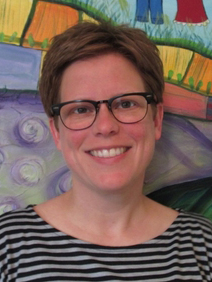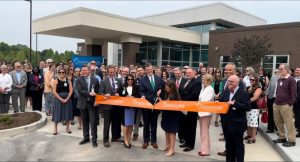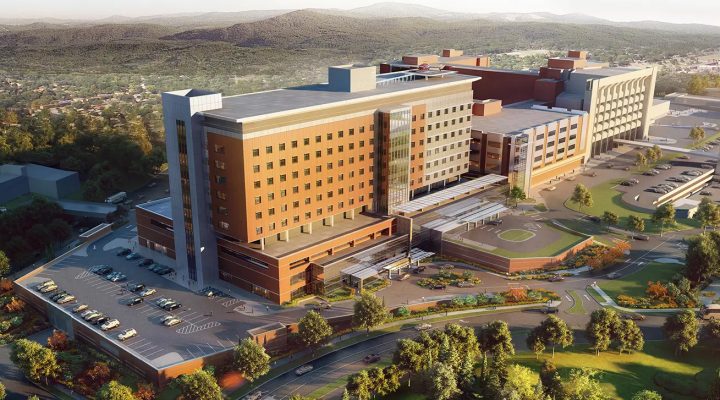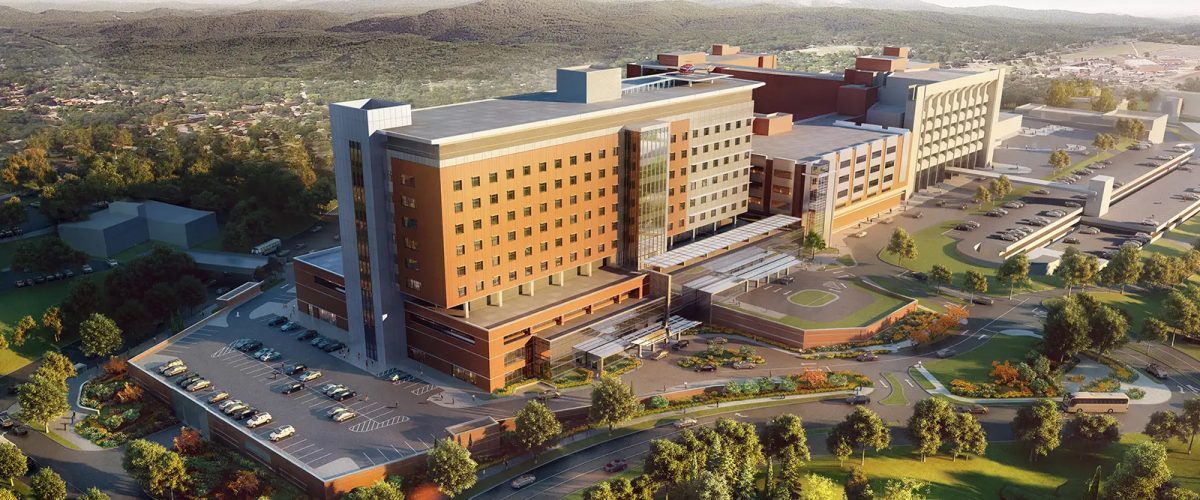The grassroots movement in support of patient-focused care at a Western North Carolina hospital is nothing less than a spiritual quest for beloved community, as Missy Harris sees it.
“I definitely see my role in this coalition, and the work this coalition is doing, as a ministry,” said Harris, co-pastor of Circle of Mercy Congregation in Asheville, N.C.
The group’s goal is to convince HCA Healthcare to boost staffing levels at Mission Hospital in Asheville.

Missy Harris
“You’re talking about people who have poured their lives into this community and hospital and are not willing to watch it all be washed away with profits-over-patients tactics,” said Harris, a former chaplain at Mission Hospital.
Friction began not long after HCA, the nation’s largest publicly traded health care company, acquired Mission Health for $1.5 billion in 2019. The system anchored by the Asheville facility includes smaller units in outlying areas.
After rebounding from the pandemic, revenues surged at the hospital due to cost reductions, according to a 2024 study by Mark Hall, a professor at Wake Forest University.
His report explains: “The drop in costs was driven substantially by HCA’s reduction in patient-care staffing. Mission’s staffing ratios plummeted from above the peer average to the bottom of the peer hospital range, by cutting the staffing rate from 6.0 full-time equivalent staff per occupied bed in 2018 to 3.7 in 2021. Over the same time, average staffing at other North Carolina hospitals remained steady at 5.1 FTEs per patient.”
Consequently, the study found, “Mission’s flagship facility became the fifth largest for-profit hospital in the country. Prior to HCA’s purchase, Mission had been operated as a nonprofit ‘charitable’ organization ever since its founding in 1885.”
Another result, the grassroots coalition contends, has been a decline in quality of care, higher levels of stress among staff and grief over the loss of a locally owned and much-loved health care institution. “Generally, it was a place where people worked their entire careers. Now, we’ve had more than 200 doctors leave in the past five years because of working conditions,” Harris said.
In April, HCA was assigned an independent monitor to ensure the company is adhering to the conditions of its purchase of the hospital, including making investments in services and facilities, and in community health and well-being efforts, the Asheville Citizen-Times reported.
Previously, the company met a federal deadline for submitting a plan to correct deficiencies “regarding its governing body, patients’ rights, quality assessment and performance improvement, nursing, laboratory and emergency services,” the newspaper reported in February.
Harris organized and co-signed a letter from area clergy to the Citizen-Times expressing concern about violations and about staffing at Mission.
“As faith leaders, we see our local hospitals as sacred spaces. Within the walls of this critical place in our community, we regularly accompany congregational members, friends and family with spiritual care and love,” the letter says. “We are present at the beginning and end of life, as well as in crucial moments in between. We understand the vital role of our health care system. Therefore, we are compelled to speak out on behalf of the people we serve.”
“I was told, ‘All the chaplains do is pray with people.’ They showed a complete lack of understanding of the spiritual support chaplains provide in trauma situations.”
Changes made to the chaplaincy program at the hospital also have caused much lament, Harris added.
“They gutted it. I was told, ‘All the chaplains do is pray with people.’ They showed a complete lack of understanding of the spiritual support chaplains provide in trauma situations,” said Harris, who left the hospital in 2023 after almost five years as an on-call chaplain.
“I stepped out because it was wearing on me. I could no longer remain in a system and not be able to speak out about the ongoing moral injury to staff who are in the system and concerned about family members and patients.”
HCA spokeswoman Nancy Lindell said the company considers chaplaincy a vital part of the care it provides.
“Mission Hospital has several chaplains on staff in both full- and part-time roles for spiritual support and pastoral care to patients, families and hospital staff. We both appreciate and fully acknowledge that our chaplains provide personal consultations, assessments, emotional support and clinical pastoral care to patients, families and hospital staff, among the many things they do for those in our care.”

Ribbon cutting last year for the Sweeten Creek Mental Health and Wellness Center created by HCA as partt of its promise whem acquiring Mission Hospital.
Lindell also shared an October letter more than 75 current Mission-affiliated physicians signed and sent to the independent monitoring firm tasked with overseeing HCA’s purchase agreement.
“With respect to physician engagement, it is true that in 2019, as the transition under HCA unfolded, there were many changes,” the physicians said. “As with any big transition, it was not without tension or challenges. There was turnover within both the hospital and physician leadership which meant new relationships had to be formed. This, no doubt, was emotionally difficult and has taken time for us to heal.
“We all had to learn to work together with new leaders, new nurses and new physicians, all amidst the chaos of a worldwide pandemic that shook our health care system to its core. The physicians who stayed have stepped up to lead, and we have welcomed amazing new doctors into our community, adding new physician leadership and expertise to Western North Carolina.”
New services have been added since 2019, including a pediatric emergency room, a wound and burn care center, additional options for minimally invasive surgeries and expanded mental health and well-being offerings, the physicians noted.
But the Western North Carolina coalition dedicated to holding HCA accountable is continuing to grow and will keep pushing for a return to healthy staffing levels at Mission, Asheville physician Bruce Kelly said. “It is a covenant of responsibilities we have as physicians and nurses and patients to do everything we can to ensure that individuals and families in our community have access to the care they need.”
As the primary clergy member in the group, Harris said she has been tasked with reaching out to religious leaders in the 17 westernmost counties the hospital serves.
“The hope is that we will spread the work out beyond Ashville,” she said. “Faith leaders and their communities offer a powerful impact because this is sacred work. A hospital is a sacred and holy place because it’s where people get the care and support they need.”


